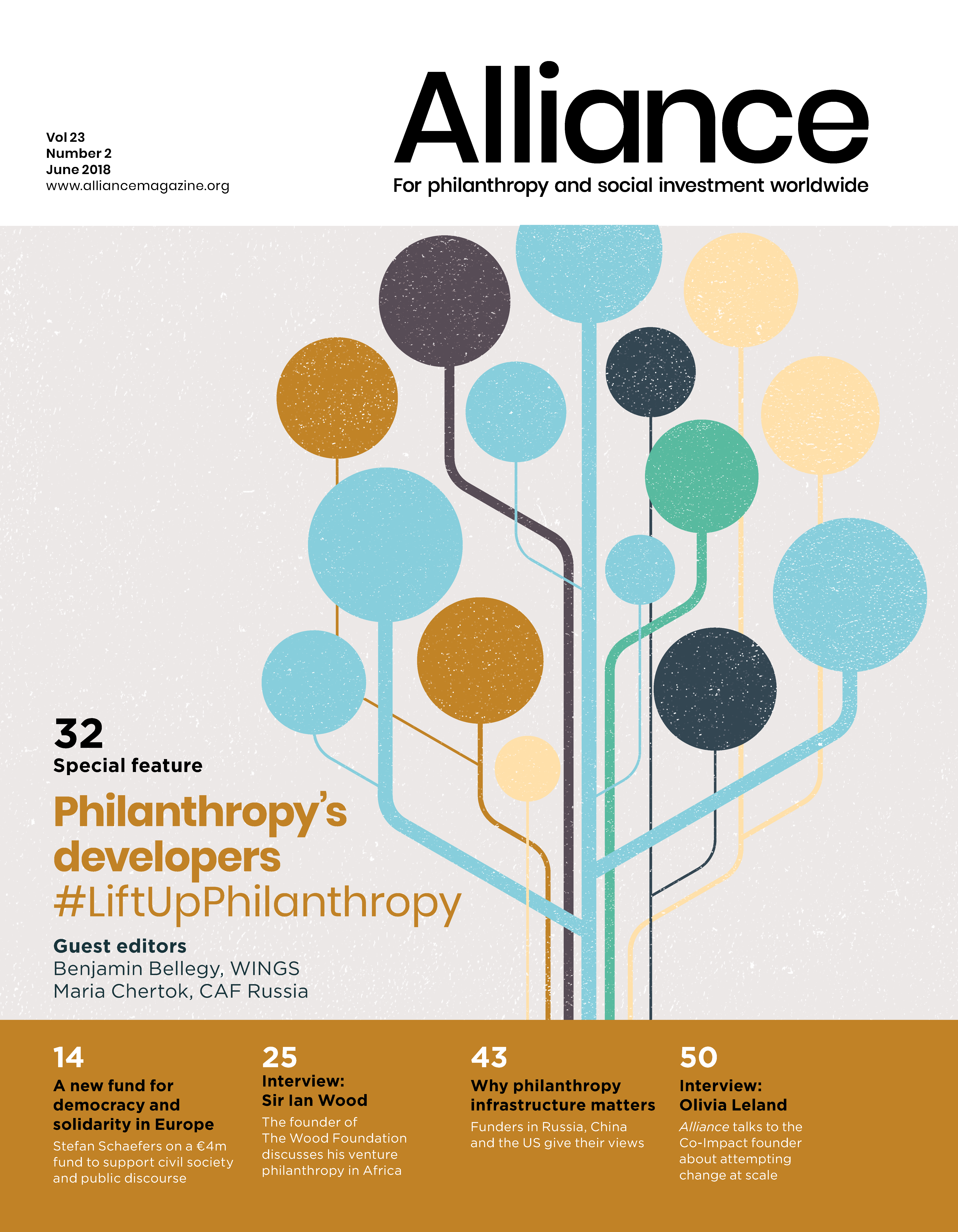Philanthropy support organizations have a vital role in ensuring that disruptive technology leads to change for the better
Technology is opening up new opportunities to empower marginalized and disenfranchised communities around the world, and new ways of addressing social and environmental challenges. On the other hand, recent news stories have highlighted the subversion of the democratic process by organizations harvesting vast amounts of data and using it to influence elections. Likewise, there is growing concern that an algorithmic decision process now governing many aspects of our lives can develop biases and thus adversely affect certain groups. How can support organizations help philanthropy and civil society to accentuate the positive elements of these developments and offset the negative ones?
The impact of the coming wave of technological disruption will be felt by Civil Society Organizations (CSOs) in three main domains: offering new ways to deliver missions, transforming organizational structures and operations, and creating new problems to address.
The first impact can already be seen in the many great examples of ‘tech for good’ around the world. When it comes to the second, let’s take one example, that of blockchain technology. Blockchain makes decentralization possible, which could benefit CSOs by helping them to reduce the cost and complexity of operating across geographic borders, but it could also pose a threat to traditional institutions if new forms of giving which don’t require intermediaries (such as direct cash transfers) are made possible at an unprecedented scale.
Beyond their own operation, CSOs should also recognize that these trends will affect the people and communities they serve. In both cases, it is vital to engage with these issues, and to ensure civil society plays a full part in efforts to minimize the negative consequences of technological development, or where they are unavoidable, explore ways to offset them.
There are a number of immediate challenges for philanthropy and civil society. One is simply a lack of required knowledge and skills. Another is risk appetite: CSOs usually have limited resources, so it is hard to justify investing in high-risk innovations using unproven technologies.
Infrastructure organizations can help overcome these challenges. They can curate and disseminate information on the impact of technological trends. They can support the development of technology leaders within civil society. They can also act as a conduit between the technology community and CSOs, bringing the two together so that partnerships can be developed as one means of mitigating the risk of innovation.
Support organizations can also help to ensure that CSOs have a voice in the debate about the misuses and unintended consequences of new technology, by coordinating insight from front-line organizations and acting as a focal point for engagement between civil society and other key stakeholders, such as government and the technology industry.
Governments must also play their part. At the most basic level, they need to recognize the role civil society has to play in informing new policy and legislation around technology. This must be reflected in efforts to engage with CSOs, both directly and through infrastructure organizations. Governments should also factor civil society into wider industrial or technology strategies, and include civil society impact assessments in policy consultations relating to new technologies.
Infrastructure organizations can convene these different parties. At CAF, for example, we have recently launched our Future:Good campaign, which aims to bring together CSOs, government and the technology sector around a number of shared principles to ensure that the impact of new technologies is as positive as possible.
CSOs must engage with technology issues now if they are to continue to meet needs effectively in the future. It will be hard to do this without the help of infrastructure organizations. Together, they can ensure that they are able to harness the potentially transformative benefits of disruptive technologies, while also playing a key role in minimizing their downsides.
Rhodri Davies is head of policy at the Charities Aid Foundation (CAF).
Email: RDavies@cafonline.org Twitter: @Rhodri_H_Davies







Comments (0)